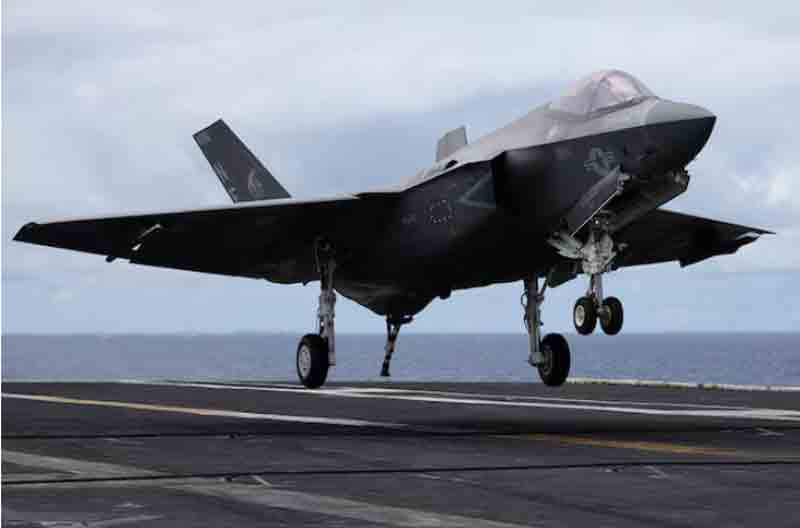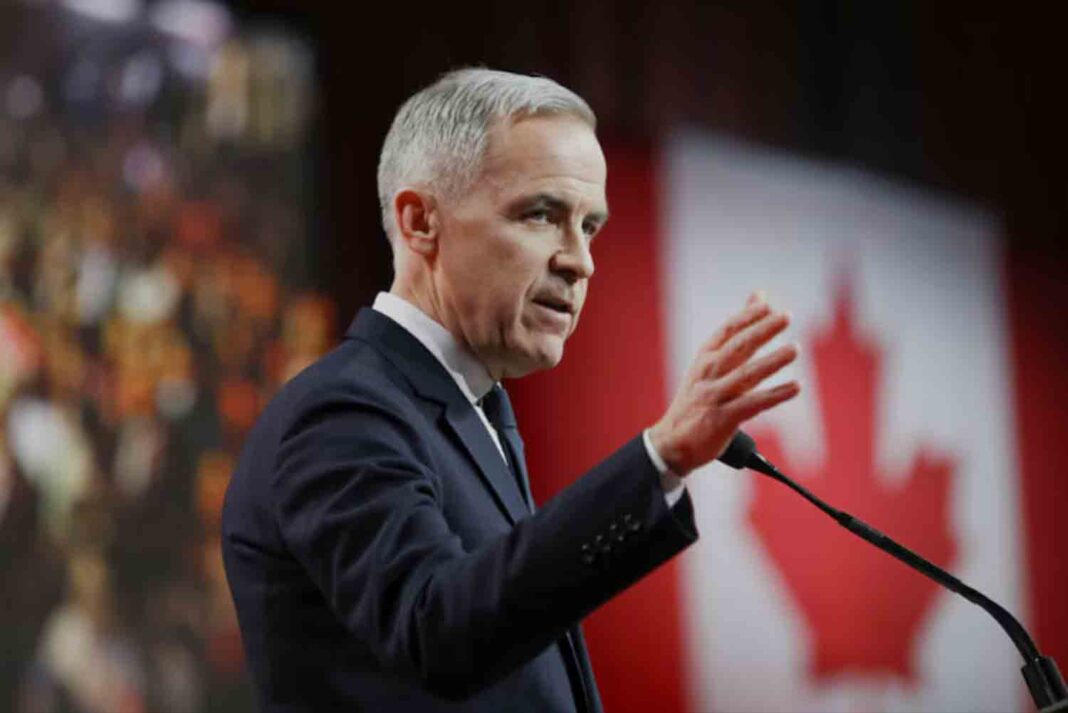Canada is exploring potential alternatives to its agreement for purchasing U.S. fighter jets, as Prime Minister Mark Carney expressed concerns about the nation’s heavy reliance on the United States for security. His remarks came shortly after he initiated a review of a C$19-billion ($13.29 billion) contract for 88 F-35 fighter jets from Lockheed Martin, amid ongoing trade tensions with the U.S.
The Canadian defense ministry has stated that the contract is still active, and Ottawa has committed funds for the initial 16 F-35 aircraft. However, Carney emphasized the need for Canada to seek options beyond the U.S. “Our security relationship is overly concentrated on the United States. We need to diversify,” he told reporters during a visit to London, highlighting that approximately 80% of Canada’s defense budget is allocated to American military equipment.
He added, “Considering the importance of obtaining value for money and the potential for significant production of alternative aircraft within Canada, it is wise and beneficial for Canada to explore these options.”
While Carney did not specify any particular companies, Sweden’s Saab, which lost the fighter jet contract to Lockheed Martin, had previously offered to manufacture its aircraft in Canada. Canadian companies also stand to gain from this relationship. Bombardier’s CEO, Eric Martel, expressed concerns that if Canada were to cancel the Lockheed Martin contract, Washington might retaliate by targeting the planemaker’s U.S. contracts.
U.S. President Donald Trump has imposed tariffs on Canada and has suggested the idea of making Canada the 51st state. Philippe Lagasse, a procurement expert at Carleton University, noted that acquiring 16 F-35s and subsequently adding another jet could prove to be costly.
Canada, under pressure from successive U.S. administrations to enhance its defense budget, committed last year to significantly increase funding for its military, aiming to align its expenditures with NATO targets by 2030. Lockheed Martin expressed its appreciation for its relationship with Canada and directed procurement inquiries to the Canadian government. The U.S. Defense Department did not provide a comment when approached.
In a related development, Washington temporarily halted intelligence sharing and arms shipments to Ukraine this month, prompting concerns about the risks associated with over-reliance on U.S. military systems. Canada and its allies depend heavily on the United States for critical support, including target identification, data processing, and the suppression of enemy air defenses. David Perry, a defense analyst and president of the Canadian Global Affairs Institute, noted, “Many are reconsidering the reliability of access to American military technology.”
He added, “All alternatives, aside from maintaining our current plans, appear significantly less favorable.” Canada finalized its F-35 agreement in 2023, anticipating the first aircraft delivery in 2026. Ottawa has consistently extended the operational life of its Boeing CF-18 fighter jets, some of which are over 40 years old, with plans for them to remain in service until 2032, by which time all 88 F-35s are expected to be operational. Carney mentioned that increased defense spending by European nations could create opportunities for Canadian companies.
Discover more from Defence Talks | Defense News Hub, Military Updates, Security Insights
Subscribe to get the latest posts sent to your email.





